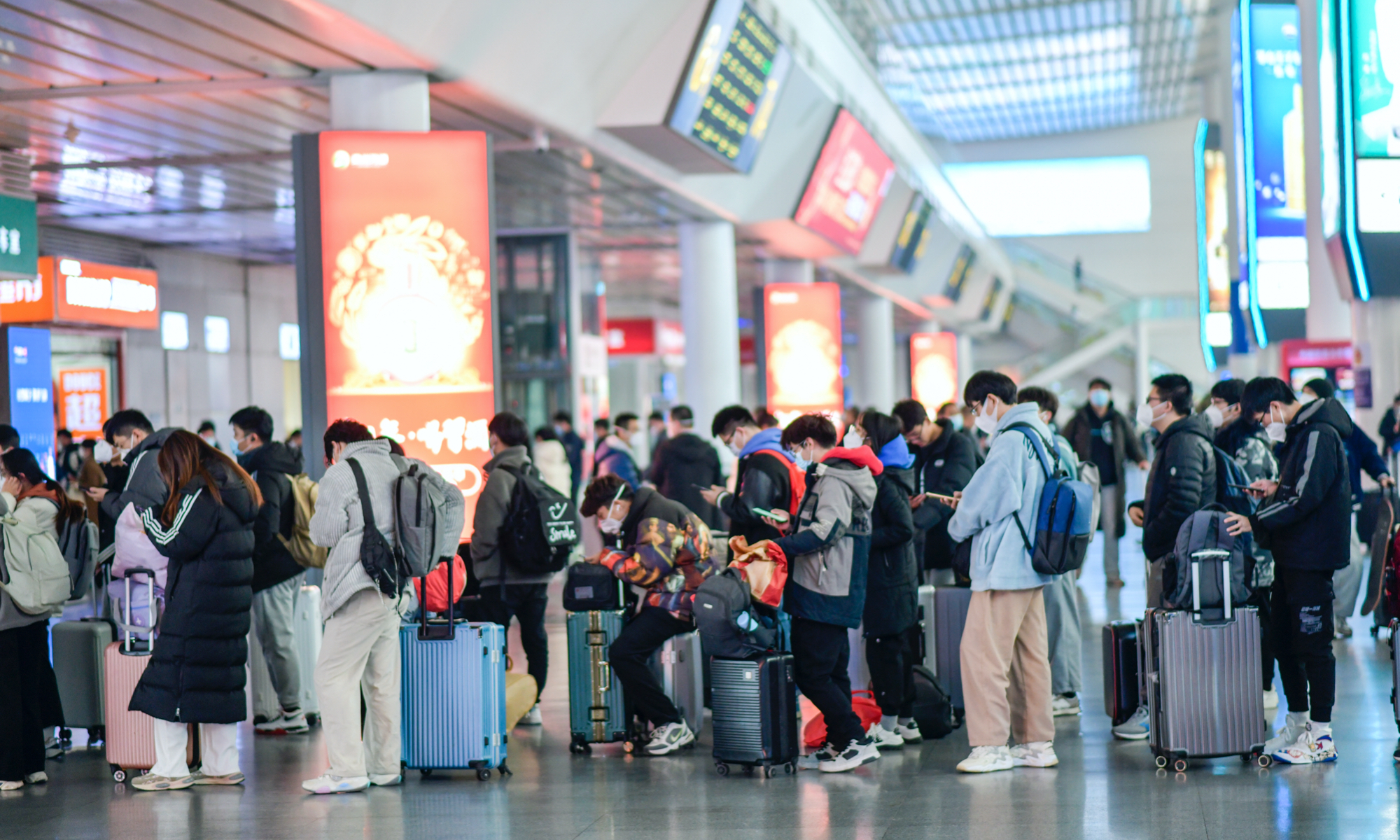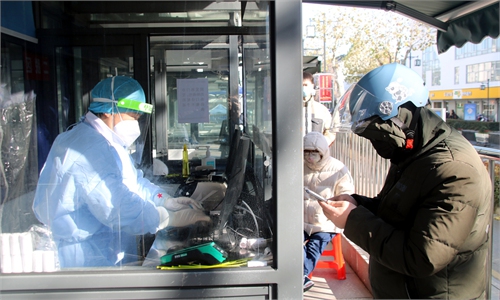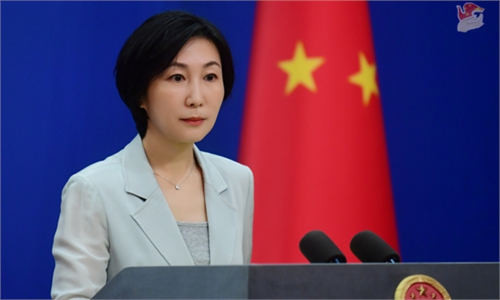Multiple Chinese cities allow mild COVID cases to return to work as life starts to normalize
Localities make dynamic adjustments based on different epidemic situations: expert

Long lines are seen back at a train station in Jinan, East China's Shandong Province, on December 7, 2022, as China further optimized COVID response and relaxed controls. Photo: IC
More Chinese cities are gradually moving on from the COVID-19 impact as some including Guiyang and Chongqing in the Southwest have announced notices to allow people with mild COVID-19 symptoms to return to work if their health conditions are qualified amid the country's continuous efforts to better balance epidemic prevention and social and economic development. Experts suggested each city should make dynamic adjustments based on its epidemic situation.
Employees at government institutions, medical institutions, express and logistics companies, supermarkets and other institutions ensuring daily life can go to work with proper personal protection if they are COVID-19 asymptomatic carriers or have mild symptoms and their health conditions allow, the Guiyang authorities said in a notice on Tuesday.
Other regions including Southwest China's Chongqing, Wuhu in East China's Anhui Province, and East China's Zhejiang Province have released similar notices in a move to minimize the outbreak's impact on residents' lives. Except for special requirements, negative test results are no longer needed in part of the regions.
Different cities will certainly have COVID-19 peaks at different times. "Each city should make dynamic adjustments based on its own pace of COVID-19 development," Wang Guangfa, a respiratory expert from Peking University First Hospital, told the Global Times on Tuesday.
Some cities such as Baoding, a city with more than 9 million residents in North China's Hebei Province, are among the first batch of cities to experience a large scale of infections, and Baoding is starting to resume normal life. Meanwhile, some other cities are making efforts to prepare for a growing number of new infections and possible problems caused by rising COVID-19 infections such as a surge in demand for medicine, including antipyretic drugs and limited medical resources.
Some cities have carried out measures to ease these problems. Zhoukou in Central China's Henan Province announced plans to dispatch the first batch of 130,000 tablets of antipyretics to city residents for free starting from 11 am on Tuesday, and the city authorities vowed to continue to coordinate the supply of more targeted anti-epidemic drugs to the market. Zhoukou also asked residents to use medicine scientifically and crack down on illegal acts.
Wang suggested cities that had yet to see a COVID-19 peak should concentrate more efforts on optimizing fever clinics and ensuring that patients with different symptoms receive medical treatment, and boost their medicine supplies, as experience showed medical institutions will feel pressure as COVID-19 cases surge.
For cities that have already reached their COVID-19 peaks, they should pour more resources into the treatment of severe cases and construction of intensive care units (ICUs). Besides having more beds, treatment facilities such as ventilators as well as experienced physicians and nursing staff should also be prepared accordingly, Wang said.
More than 130 Omicron subvariants have entered China in the past three months, including BF.7, BQ.1 and XBB. BQ.1 and XBB are new subvariants of Omicron and are dominant strains in some European countries and regions, but the pathogenicity is no different from other mutant strains of Omicron, according to health officials on Tuesday.
Wang said the COVID-19 peak across the country will last until the end of the Spring Festival and society will gradually return to normal around the end of February and the beginning of March.
But even then, people should still not let down their guard, Wang said, and they should continue to wear masks until summer. Now, winter is the high season for influenza and other respiratory viruses.
In some regions such as Baoding, residents' lives have gradually resumed. An employee surnamed Zhang from a Yonghui Superstores branch in Baoding told the Global Times on Tuesday that all the employees are working at a normal pace, and the business runs normally.
An employee from Baoding Zoo told the Global Times on Tuesday that the zoo had reopened on December 12 and is welcoming more visitors gradually.
Although the zoo had been closed since the end of November, there were still some employees left to take care of the animals, said the zoo employee. "We also had a plan to maintain normal operation, in case some employees were infected," he said.


